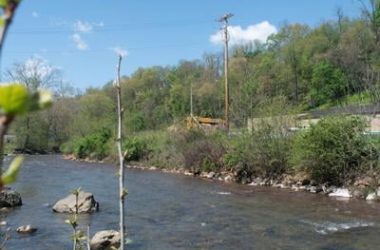By GUISEPPE SABELLA
Charleston Gazette-Mail
CHARLESTON, W.Va. — Officially, it’s not been determined how four people died last weekend in Jefferson County. But Sheriff Pete Dougherty says he knows.
“I’ve not gotten any confirmation about the autopsy but, I mean, it’s clear and obvious to us that it was carbon monoxide poisoning,” the sheriff said.
On Sunday, a woman opened the door to her relatives’ home in Kearneysville and found her 3-year-old daughter, Kylee King, dead along with three other family members: Andrea Margaret Miller, 42; James Franklin Miller, 46; and Derek Miller, 16.
Carbon monoxide poisoning kills more than 400 people every year, according to data from the U.S. Centers for Disease Control and Prevention.
The gas is odorless and colorless, and the danger often grows as temperatures drop. Snow may block needed ventilation on homes or vehicles, according to the the National Fire Protection Association.
And, like all fuel-burning appliances, heaters create carbon monoxide.
“The problem with this is it sort of lulls you into a drowsy condition, and next thing you know you’re out before you even know what really happened,” Dougherty said.
At its lowest levels, carbon monoxide will have little to no effect after eight hours of exposure, the NFPA states. At its highest concentrations, the gas can kill someone after three minutes.
Exposure may lead to dizziness, shortness of breath, vomiting, confusion or headaches.
“CO poisoning can be confused with flu symptoms, food poisoning and other illnesses,” according to the NFPA.
The gas cannot be seen or smelled, but it can be heard with the use of a carbon monoxide alarm. Every alarm has an expiration date, and some make an “end-of-life” sound when they need to be replaced, according to the NFPA.
“If you choose a plug-in type CO alarm, make sure that the alarm also has a battery backup,” the NFPA states.
The organization recommends placing an alarm outside every sleeping area and on every level of the house.
Dougherty said First Alert, a company that manufactures alarms and other safety equipment, has offered the Jefferson County Sheriff’s Office between 50 to 100 monitoring kits in response to Sunday’s quadruple fatality.
He said the alarms will be distributed to residents throughout the county.
The NFPA suggests testing carbon monoxide alarms every month, and having the heater inspected by a professional each year.
Generators should be used outdoors, at least 20 feet from the house. And, much like a car, they should never be operated inside the garage.
Prevention is also important during and after snowstorms. Snow can block exhaust pipes on vehicles, along with the vents on dryers, furnaces, stoves and fireplaces, according to the NFPA.
Such risks extend beyond the home. The buck firearm season runs through Dec. 2, and hunters should be mindful of the risks associated with heaters and grills, according to a news release from the West Virginia Poison Center.
The agency said fuel-burning equipment should never be used in tents or portable trailers.
See more from the Charleston Gazette-Mail





